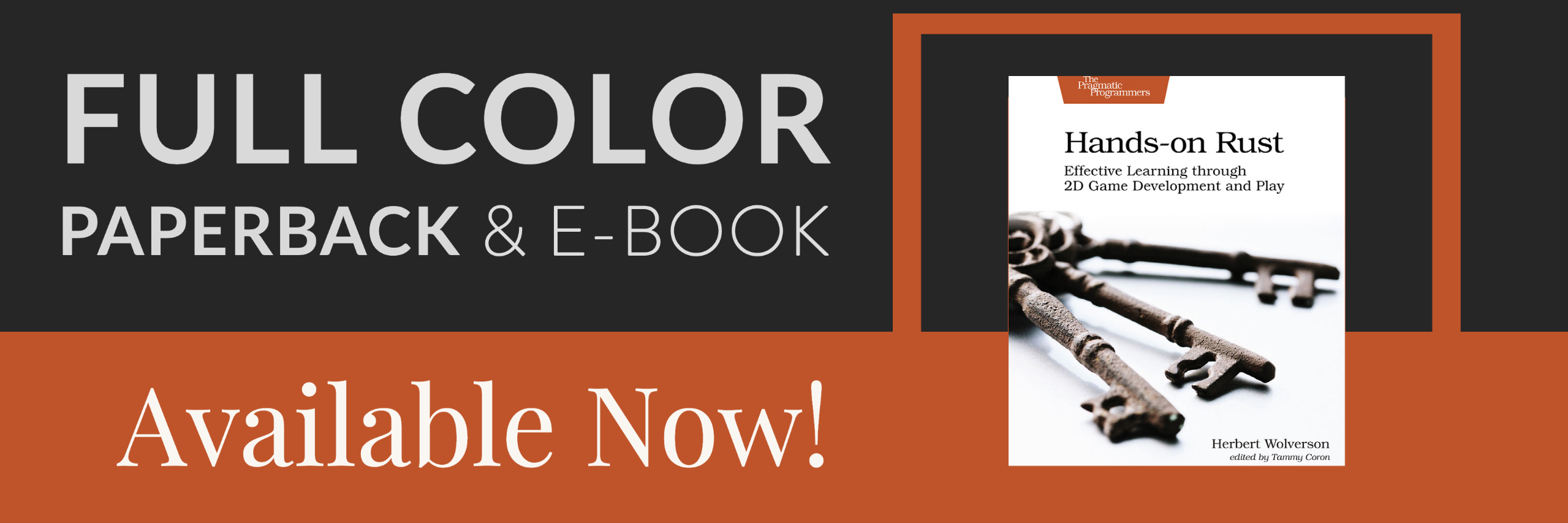Introduction
About this tutorial
This tutorial is free and open source, and all code uses the MIT license - so you are free to do with it as you like. My hope is that you will enjoy the tutorial, and make great games!
If you enjoy this and would like me to keep writing, please consider supporting my Patreon.
Every year, the fine fellows over at r/roguelikedev run a Tutorial Tuesday series - encouraging new programmers to join the ranks of roguelike developers. Most languages end up being represented, and this year (2019) I decided that I'd use it as an excuse to learn Rust. I didn't really want to use libtcod, the default engine - so I created my own, RLTK. My initial entry into the series isn't very good, but I learned a lot from it - you can find it here, if you are curious.
The series always points people towards an excellent series of tutorials, using Python and libtcod. You can find it here. Section 1 of this tutorial mirrors the structure of this tutorial - and tries to take you from zero (how do I open a console to say Hello Rust) to hero (equipping items to fight foes in a multi-level dungeon). I'm hoping to continue to extend the series.
I also really wanted to use an Entity Component System. Rust has an excellent one called Specs, so I went with it. I've used ECS-based setups in previous games, so it felt natural to me to use it. It's also a cause of continual confusion on the subreddit, so hopefully this tutorial can shine some light on its benefits and why you might want to use one.
I've had a blast writing this - and hope to continue writing. Please feel free to contact me (I'm @herberticus on Twitter) if you have any questions, ideas for improvements, or things you'd like me to add. Also, sorry about all the Patreon spam - hopefully someone will find this sufficiently useful to feel like throwing a coffee or two my way. :-)
Copyright (C) 2019, Herbert Wolverson.
